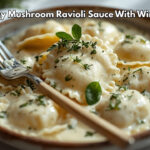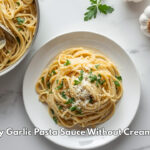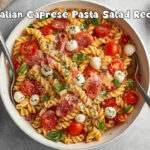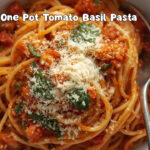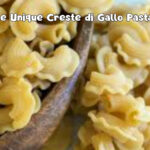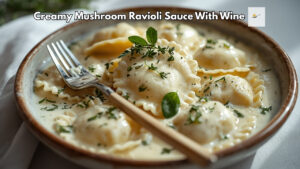Table of Contents
ToggleAs a lover of both spaghetti squash and traditional pasta, I’ve often wondered about the nutritional differences between the two. Which one is better for me? Should I look spaghetti squash nutrition facts or indulge in a comforting plate of pasta? Let’s dive deep into the world of spaghetti squash carbs vs pasta, comparing their nutritional value, cooking methods, and personal experiences.
What is Spaghetti Squash?
Spaghetti squash is a fascinating vegetable known for its stringy strands that resemble traditional spaghetti noodles when cooked. This unique quality makes it a popular substitute for pasta, especially for those seeking healthier, low-carb alternatives.
One of the most exciting things about spaghetti squash is the variety of cultivars. These cultivars offer different shapes and sizes and various colors ranging from pale yellow to deep orange. The deeper the color, the more carotene it contains, making it even more nutritious.
Spaghetti Squash Nutrition Facts
Spaghetti squash is a fantastic option for anyone looking to reduce their carb intake without sacrificing flavor. Here’s why I love it:

- Low in Carbs: It offers about 7 grams of carbs per cup.
- Low in Calories: Only 31 calories per cup, perfect for lighter meals.
- Nutrient-rich: Packed with vitamins A and C, potassium, and fiber.
- Micronutrient Content: While it has some low micronutrient content compared to other vegetables, it’s still a great addition to your diet.
- Large Seeds: The seeds can be roasted like pumpkin seeds, adding a delicious crunch.
I remember the first time I tried spaghetti squash. It was not only fun to make but also a guilt-free way to enjoy one of my favorite meals. Whether you’re trying to eat healthier or want to try something new, spaghetti squash is definitely worth a place on your plate.
Check out this informative forum post I found about carbs in spaghetti squash vs. pasta! It shares insights and tips from others who have just discovered this versatile vegetable.
What is Traditional Pasta?
On the other hand, traditional pasta is a staple food in Italian cuisine and is commonly enjoyed worldwide. Pasta, whether fresh or dried, is typically produced from basic pasta dough that can be made by hand or with simple machines. It comes in many shapes and varieties, with about 310 specific forms of pasta recorded.
Nutritional Breakdown
Pasta is much higher in carbs compared to spaghetti squash. Here’s a closer look at what makes pasta a favorite for many:
- High in Carbs: A cup of cooked pasta contains around 43 grams of carbohydrates.
- Caloric Content: It has about 221 calories per cup.
- Rich in Nutrients: Good source of iron, B vitamins, and some fiber.
- Energy Boost: Provides the energy needed for those who need an extra boost.
Pasta dishes can range from hearty meals to light pasta salads, making it an incredibly versatile food that’s beloved in many countries. It’s easy to store and readily available in local supermarkets everywhere, making it a convenient option for quick and delicious meals.
Cooking Method: Spaghetti Squash and Pasta?
Now that you have a good understanding of both options, let’s talk about how to cook them! Cooking both spaghetti squash and pasta is simple, but they do require different methods. Let’s dive into the details!
Cooking Spaghetti Squash
You can cook spaghetti squash in several ways:
- Roasted:
- Cut the squash in half and remove the seeds.
- Brush it with olive oil.
- Bake it until tender.
- Once cooked, the flesh will quickly turn into strands, making it a perfect alternative to spaghetti.
- Raw:
- Though not common, you can shred it raw into salads for a crunchy texture.
Here’s another great resource for you! This page provides detailed nutritional info about raw spaghetti squash, making it easy to see how it fits into your diet. It’s a helpful page for anyone looking to learn more about this tasty vegetable!
Cooking Pasta
Cooking pasta is equally easy and straightforward:
- Boiling:
- Bring a pot of water to a boil.
- Add fresh or dried pasta.
- Boil until al dente, which means firm to the bite.
- Whether you’re using commercially sold pasta or homemade, the process remains the same.
Making pasta is a routine in my kitchen. I love the simplicity of boiling it to perfection and then combining it with a variety of pasta sauces or tossing it into pasta salads.
Personal Experiences: Spaghetti Squash Carbs vs Pasta

Spaghetti Squash Served with Marinara Sauce
One of my favorite ways to enjoy spaghetti squash is served with marinara sauce. Here’s why I love it:
- Light and Flavorful: The strands absorb the sauce perfectly, giving it a delicious, light flavor.
- Healthy Alternative: It’s a satisfying, guilt-free meal without the heaviness of traditional pasta.
- Nutritious: Packed with vitamins and low in carbs, it’s perfect for a nutritious meal.
I often turn to this dish when I want something comforting yet nutritious. The way the squash strands mix with the marinara sauce is truly delightful.
Pasta with Tomato Sauce
When I crave something classic, I’ll make a simple pasta with tomato sauce. This dish is beloved in Italy for a reason. Here’s what makes it special:
- Rich and Comforting: The rich flavors of the tomato sauce combined with the pasta are incredibly comforting.
- Nostalgic: It brings back memories and offers a sense of nostalgia, especially when I want something filling.
- Energy Boost: While higher in carbs, the energy boost from pasta is undeniable.
Both spaghetti squash and traditional pasta have their unique benefits and flavors. Depending on what I’m in the mood for, I enjoy both options equally.
If you’re craving a creamy delight, check out my recipe for cream cheese and tomato pasta. Also check out this video on spaghetti squash! It dives into what it is and how to cook it, making it a fun way to learn about this delicious vegetable.
Spaghetti Squash Carbs vs Pasta: Which is Healthier?
So, the wait is finally over! Let’s dive into the detacarbs of spaghetti squash carbs vs pasta to see which one comes out on top in terms of health benefits.

Which is Healthier?
- For Low-Carb Diets: Spaghetti squash is the clear winner. Its low carb and calorie content makes it ideal for weight loss and managing carb intake.
- For Energy and Nutrition, Pasta takes the lead. Its higher carb and calorie content provide sustained energy, making it suitable for active individuals.
Is spaghetti squash high in carbs?
Both spaghetti squash and pasta have their own unique benefits. It really depends on what your dietary goals are. For me, I like to switch between the two, enjoying spaghetti squash when I want something light and nutritious and pasta when I need that extra energy boost.
Storage of spaghetti squash vs pasta
Spaghetti Squash
- Easy Storage: Spaghetti squash is super easy to store! You can keep it at room temperature for weeks without any issues.
- Easy to Grow: If you enjoy gardening, you’ll be happy to know that it’s relatively easy to grow your own spaghetti squash at home. There’s something rewarding about harvesting your own veggies!
I love picking up spaghetti squash during my grocery runs. They’re often available in most local supermarkets, so it’s convenient to find.
Pasta
- Long Shelf Life: Dried pasta is another winner when it comes to storage. You can keep it in your pantry for months, which makes it a great staple to have on hand.
- Popular: Pasta is incredibly popular worldwide. You can find it in almost every grocery store, so it’s readily available in many countries.
Conclusion: Spaghetti Squash Carbs vs Pasta

When it comes to comparng between spaghetti squash carbs vs pasta, it depends on your dietary goals. If you’re looking for a lower-calorie, low-carb option, spaghetti squash is the way to go. It’s nutrient-rich, easy to grow, and an excellent pasta substitute. On the other hand, if you’re seeking a more energy-dense meal, pasta—with its high carb and calorie content—is ideal.
FAQs About Spaghetti Squash Carbs vs Pasta
1. What is spaghetti squash, and how is it different from traditional pasta?
Spaghetti squash is a vegetable spaghetti that, when cooked, forms strands similar to traditional pasta. Unlike traditional pasta made from wheat, spaghetti squash is a low-carb alternative packed with nutrients.
2. How is pasta traditionally made?
Pasta is traditionally produced by hand from basic pasta dough, which consists of flour and water. This dough is then rolled out and shaped into various forms, resulting in today’s delicious pasta.
3. Can I grow spaghetti squash in my garden?
Yes! Spaghetti squash is easy to grow in a garden. It thrives in warm weather and produces an abundance of squash you can enjoy throughout the season.
4. How do the cooking methods for spaghetti squash differ from pasta?
Spaghetti squash can be roasted, boiled, or even eaten raw, while pasta is typically cooked by boiling until al dente. Each method brings out different flavors and textures, offering various meal options.
5. Can I freeze cooked spaghetti squash?
Yes, you can freeze cooked spaghetti squash! Just make sure to let it cool completely, then store it in an airtight container or freezer bag. It’s a great way to have a healthy option ready whenever needed!





